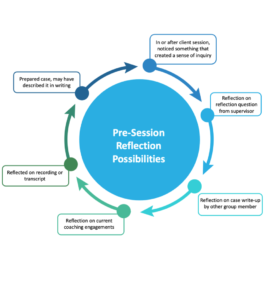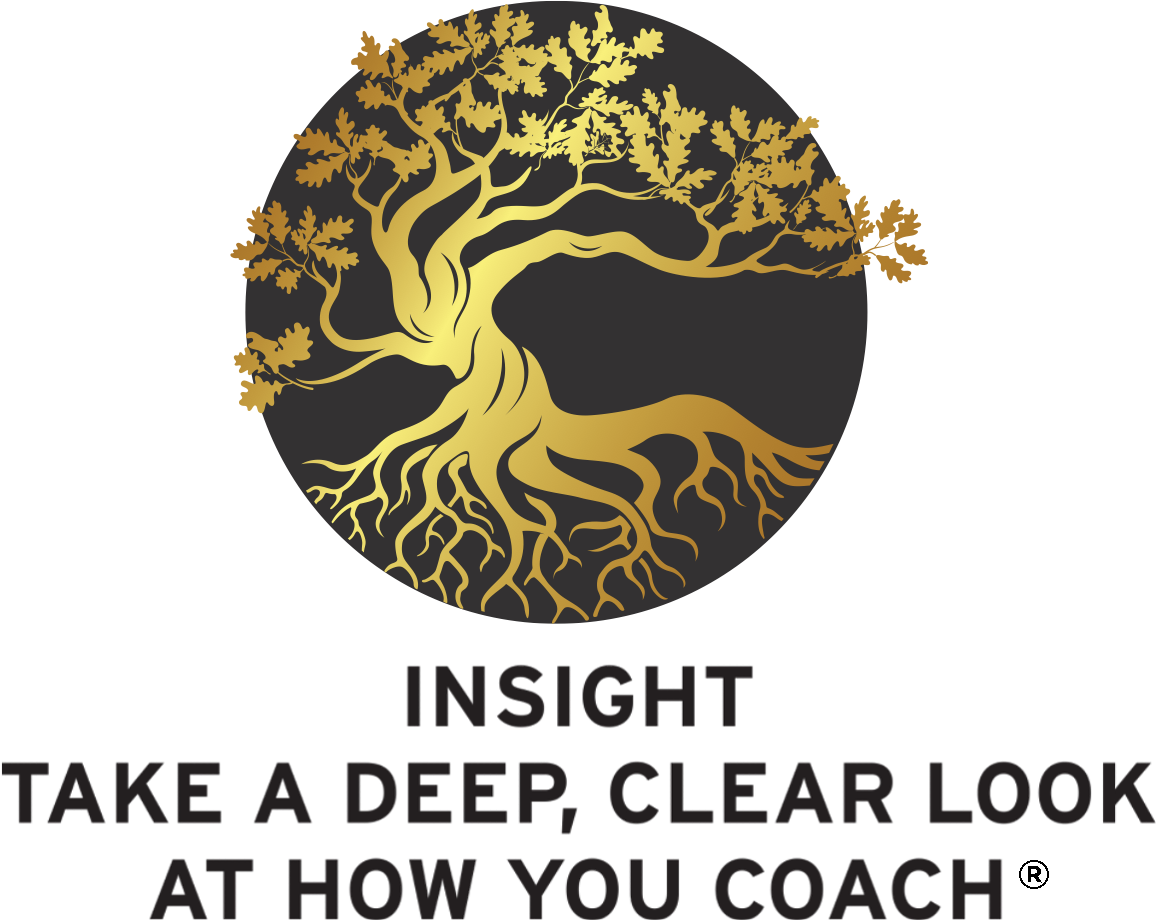Insight Take a Deep, Clear Look at How You Coach™ is a process for engaging in reflective practice with others. In my own experiences of being a supervisee in a group, I have deepened my abilities to be awake to my practice. As a supervisor, I invite small groups and individual coaches to notice themselves in the group.
Ready to explore?
Below are stories from the research which I use because I have the permission of the group, and the individual coaches.
Collective wisdom:
In the research, one coach used the “collective wisdom” phrase to describe one of the key attributes of participating in a supervision group. This phrase resonated with me as an appropriate descriptor of a key advantage of small group reflective practice. She went on to write “it’s a blessing and a gift to have access to other wise practitioners, who don’t tell me what to do and what not to do, but just through questions or through bringing things forward for me to consider, had me do what we do as coaches, help people see what they do not see…”
Reflecting possibilities before the session:

Reflecting and preparing for the supervision sessions was an opportunity for the coaches.
Reflecting in the session:
Observing one’s self, both in client settings and in the supervision sessions was often referenced. Coaches would comment on what they noticed about themselves in the session. Examples include “more calm and centered than I used to be”, “got frustrated when someone in the group…”, “noticed I was completely focused…able to view each case from the balcony more readily”, “I am action-oriented and want clients to…”
One coach caught herself in her own story “I caught myself looking for confirmation of what I believe, I refocused my attention to expanding my learning and deepening my understanding”. One coach shared that although she took different approaches than her colleagues, she was trusting her instincts more than before, her confidence in her own style was strengthening.
Reflecting on what the presenting coach had brought and on their own similar cases or clients happened as a matter of course. It felt like a natural shift that the coach would consider their own work, as they co-inquired with a colleague. Coaches wrote often about this— “I realize one of the cases reminded me of one of my clients…”, “Noticed empathy and emotion…particularly connections to my own experiences…”, listening to the presenting case and imagining “how I would coach that client”. One coach noted that not being actively coaching enabled her to listen more deeply to the case being presented as she did not move to also consider her coaching.
Reflecting on future actions and designing experiments for future interactions with clients was described. There is no way to generalize to all the coaches, however for those who journaled they identified ways they were going to work with clients in the future. One coach specified a series of questions that were on her mind for a particular client, other coaches talked more generally, such as noticing they were in the client’s story and needed to step out, or that they had ways to approach challenging clients, or delivering feedback.
Guidance for the coaches comes from their experiences within the supervision groups.
